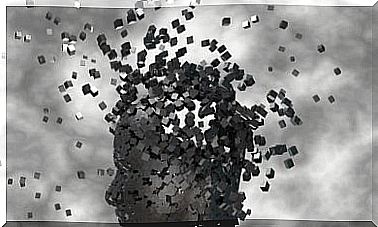Risperidone, What Is It And What Is It Used For?

Risperidone is one of the first therapeutic options in the treatment of schizophrenia and psychoses. Let’s take a closer look at how it works and what its effects are.
Risperidone is an atypical antipsychotic or neuroleptic that was introduced to the market in 1993. Its efficacy has been demonstrated on both the positive and negative symptoms of schizophrenia.
It is characterized by causing few adverse reactions compared to other drugs in its group, especially it produces few extrapyramidal side effects. In fact, in the long term it is able to improve these symptoms caused by other typical neuroleptics.

What is it for?
Risperidone, according to its technical data sheet, is indicated for the treatment of the following disorders:
- Schizophrenia.
- Manic episodes associated with bipolar disorder.
- Persistent aggression in patients with Alzheimer’s dementia who do not respond to other treatments. It should be a short-term treatment, no more than 6 weeks.
- Persistent aggression in children from 5 years of age and adolescents with conduct disorders and mental retardation. This treatment must be accompanied by other measures and should not last more than 6 weeks.
Mechanism of action
The mechanism of action of risperidone is complex, since it acts as a selective monoaminergic antagonist on different types of receptors. We can highlight its high affinity on receptors :
- 5-HT2 from serotonin.
- Dopamine D2.
Likewise, it has affinity for alpha-1-adrenergic receptors and, although with less affinity, it also binds to histamine and alpha-2-adrenergic receptors H1.
Therefore, its mechanism of action is a combination of the antagonistic effects on these receptors. In fact, in general terms, it is considered that the hyperactivity of the dopaminergic pathway contributes especially to the symptoms of schizophrenia. Therefore, the blockade of D2 receptors by risperidone copes with them.
Similarly, serotonergic pathways also play a role in schizophrenia. Risperidone, by combining antagonism on dopamine and on serotonin, is able to control symptoms. Its antagonistic effect on serotonin also counteracts the effects of dopamine and reduces extrapyramidal symptoms.
Risperidone Side Effects
As we have said previously, the incidence of adverse effects that risperidone presents is much lower than that of other classic antipsychotic drugs, such as haloperidol. The decrease in extrapyramidal symptoms that normally characterize these treatments is especially noteworthy.
One of the main side effects of risperidone is hypotension that can occur, especially at the beginning of treatment. This reaction is more common in the elderly and patients with more weakness. Neuroleptic malignant syndrome has also been detected in some patients receiving risperidone.
Generally speaking, the most common side effects of risperidone treatment are:
- Insomnia.
- Drowsiness and decreased attention.
- Parkinsonism: includes some symptoms such as slow movements, muscle stiffness, trembling at rest or loss of expression on the face.
- Headache.

However, other side effects that may also appear are, among others:
- Weight gain.
- Depression.
- Anxiety.
- Irritability.
- Dystonia
- Dizziness
- Dyskinesia
- Abdominal discomfort
- Blurry vision.
- Urinary incontinence
- Muscle spasms.
conclusion
Risperidone is a very useful drug in the treatment of schizophrenia due to its ability to selectively block the receptors involved in psychotic processes. Likewise, the reduction in extrapyramidal adverse effects makes it one of the first therapeutic options in these disorders.
As in any pharmacological treatment, the doctor’s instructions should be followed and no changes in the dosage or interruption of the administration should be made without his or her consent. In the same way, it is always advisable to discuss with him any adverse effect detected.









